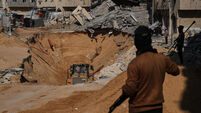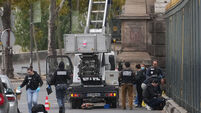Israel halts aid to Gaza after ‘ceasefire violation’
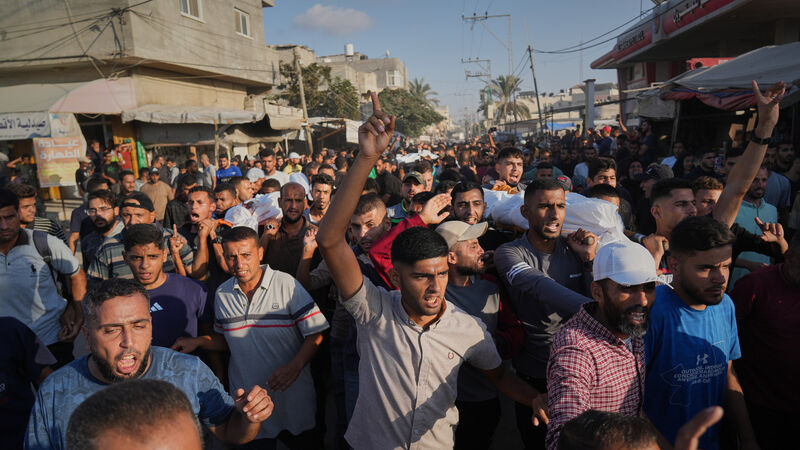
The fragile ceasefire in Gaza has faced its first major test as an Israeli security official said the transfer of aid into the territory is halted “until further notice” after a Hamas ceasefire violation.
The move comes a little over a week since the start of the US-proposed ceasefire aimed at ending two years of war.
Israel’s military earlier on Sunday said troops came under fire from Hamas militants in southern Gaza. Health officials said at least 19 Palestinians were killed by Israeli strikes in central and southern Gaza.
Israel’s military said it had struck dozens of what it called Hamas targets.
A senior Egyptian official involved in the ceasefire negotiations said “round-the-clock” contacts were under way to de-escalate the situation.
Israeli Prime Minister Benjamin Netanyahu directed the military to take “strong action” against any ceasefire violations but did not threaten to return to war.
Israel’s military said militants fired at troops in areas of Rafah city that are Israeli-controlled, according to agreed-upon ceasefire lines. No injuries were reported. The military said Israel responded with air strikes and artillery.
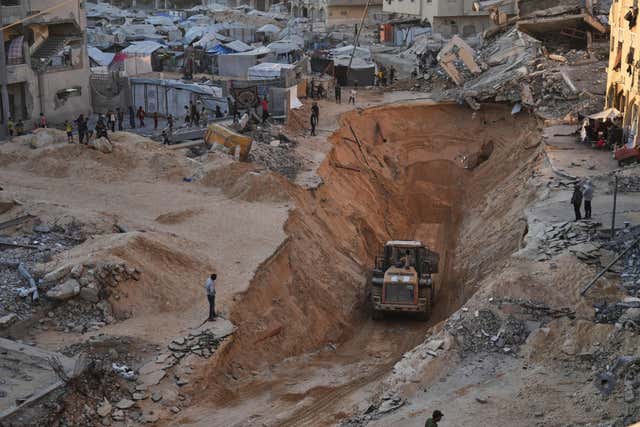
Hamas, which continued to accuse Israel of multiple ceasefire violations, said communication with its remaining units in Rafah had been cut off for months and “we are not responsible for any incidents occurring in those areas”.
Shortly before sunset, Israel’s military said it had begun a series of air strikes in southern Gaza against what it called Hamas targets. It also said its forces struck “terrorists” approaching troops in Beit Lahiya in the north.
An Israeli air strike on a makeshift coffee house in Zawaida town in central Gaza killed at least six Palestinians, according to Gaza’s Health Ministry, part of the Hamas-run government.
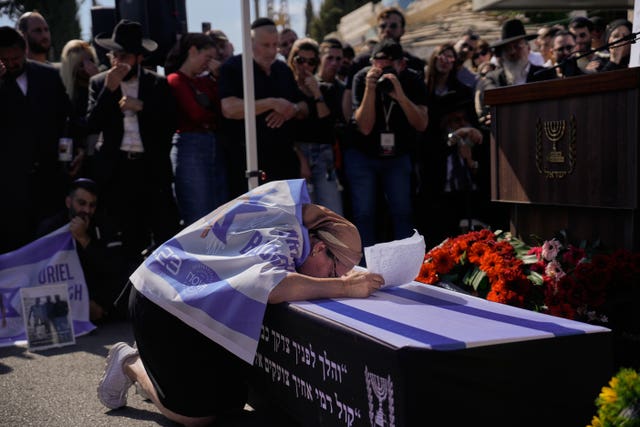
Another strike killed at least two people near the Al-Ahly football club in the Nuseirat refugee camp. The strike hit a tent and wounded eight others, said Al-Awda Hospital, which received the casualties.
The hospital said it also received the bodies of four people killed in a strike on a school sheltering displaced families in Nuseirat, along with the body of one person killed in a strike at a charging point west of Nuseirat.
Another strike hit a tent in the Muwasi area of Khan Younis in the south, killing at least four people, including a woman and two children, according to Nasser Hospital.
The strike in Beit Lahiya killed two men, according to Shifa hospital.

Israel identified the remains of two hostages released by Hamas overnight.
Mr Netanyahu’s office said the bodies were Ronen Engel, a father from Kibbutz Nir Oz, and Sonthaya Oakkharasri, a Thai agricultural worker from Kibbutz Be’eri.
Both were believed to have been killed during the Hamas-led attack on southern Israel on October 7 2023, which sparked the war. Mr Engel’s wife, Karina, and two of his three children were kidnapped and released in a ceasefire in November 2023.
Hamas in the past week has handed over the remains of 12 hostages.
Hamas’s armed wing, the Qassam Brigades, said that it had found the body of a hostage and would return it on Sunday “if circumstances in the field” allowed. It warned that any escalation by Israel would hamper search efforts.
Israel on Saturday pressed Hamas to fulfil its ceasefire role of returning the remains of all 28 dead hostages, saying the Rafah border crossing between Gaza and Egypt would stay closed “until further notice”.

Hamas said the war’s devastation and Israeli military control of certain areas of Gaza have slowed the handover. Israel believes Hamas has access to more bodies than it has returned.
Israel has released 150 bodies of Palestinians back to Gaza, including 15 on Sunday, according to Gaza’s Health Ministry. Israel has neither identified the bodies nor said how they died. The ministry posts photos of bodies on its website to help families attempting to locate loved ones. Some are decomposed and blackened. Some are missing limbs and teeth.
Only 25 bodies have been identified, the Health Ministry said.
After Israel and Hamas exchanged 20 living hostages for more than 1,900 Palestinian prisoners and detainees, the handover of remains is a major issue in the ceasefire’s first phase. A major scale-up of humanitarian aid is the other central issue.

A Hamas delegation led by chief negotiator Khalil al-Hayya arrived in Cairo to follow up the implementation of the ceasefire deal with mediators and other Palestinian groups, Hamas said in a statement.
The next stages are expected to focus on disarming Hamas, Israeli withdrawal from additional areas it controls in Gaza, and future governance of the devastated territory.
Hamas spokesman Hazem Kassem said late Saturday that the second phase of negotiations “requires national consensus”. He said Hamas has begun discussions to “solidify its positions”.
The US plan proposes the establishment of an internationally backed authority to run Gaza.





